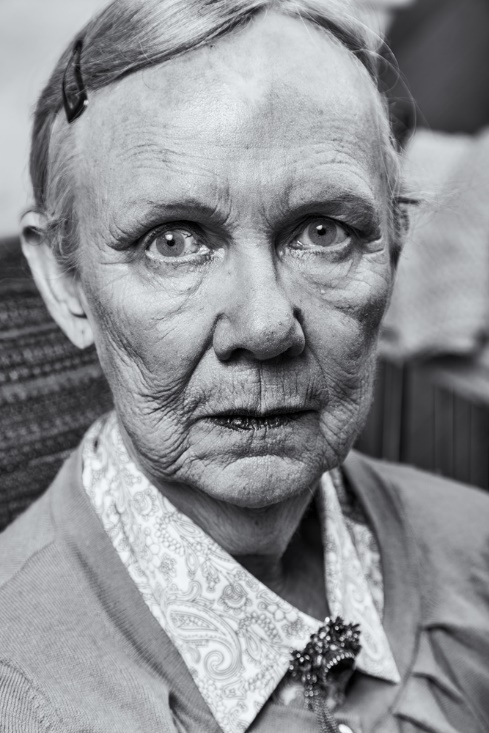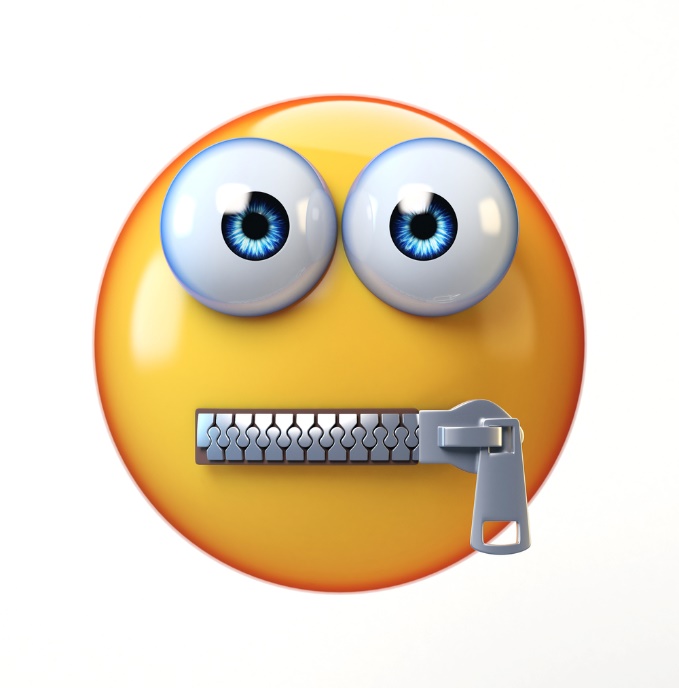BP10
(Note: Please see BP9 before you read this post)
Two weeks after his Volcanic eruption, John apologized to his daughter for his outburst. But something had already been set in motion inside Kari Lynn’s heart that could not be undone with a late and tepid apology.
So what happened during and after the encounter between John Mattson and his seven-year-old daughter on that fateful night?

On John’s part, he saw in his grandmother’s dark eyes the condemning message that he was being a bad father by allowing his daughter to run wild during the church picnic and so defy established Mattsson decorum.
Unknowingly, he responded by doing what he always did when his inner sense of badness, shame and guilt were awakened: He found a way to blame it on somebody else—usually his wife or his daughter. Sometimes, God. The accusations were too heavy and the guilt too crushing for him to admit that he was the one in the wrong, the faulty one.
Since John was trusting his self-sufficient efforts to be good instead of relying on God’s grace and forgiveness, he had to find DIY ways to get rid of his badness that had been handed down for a century in the Mattsson family and aroused by his grandmother’s penetrating look.
John couldn’t simply deny his explosive behavior in the basement, so he had to project the badness he felt within him onto his daughter and see her as the bad one. She was the scapegoat for his sin–the recipient of the generational Mattsson shame.
John only apologized to Kari for his outburst because an associate at work had mentioned how he was learning to ask his children’s forgiveness whenever he lost his temper.
John’s apology was sincere, unprecedented and–late.
On Kari’s part, she received the rage of her father and his crushing projected shame as a message that she was desperately bad and that the only way she would be loved is if she performed correctly.
If you’re a good girl, we will keep you, but if you’re a bad girl, we will send you away is what she heard her father say. She did not want to be sent away, so she decided to obey.
Of course, her obedience was not true. It did not flow from love. It was driven by compliance fueled by fear.
At her developmental age, Kari was unable to discern that her father was speaking out of a temporary insanity and did not mean what he said. She did not know that her father would never abandon her. No, she received and perceived his words quite literally.
If she were ever bad, her father would send her away forever.

Something else happened that night in the darkness of Kari’s room: She felt a new and strange sensation she had no words to describe. She experienced it physically, not emotionally.
It was the snake she felt in her stomach—the snake that had been passed down for generations in the Mattsson family. It was the presence of swallowed anger that would thirty years later slither up from her stomach as acid reflux and rip a hole in her throat.
As her father’s hidden true self erupted in the form of the Volcano in the basement, Kari’s emotions were swallowed that night and would seep out in Leakage thirteen years later.
No one in the Mattsson family knew how to use the Well. It was always the Leakage with rare Volcanic eruptions that were never spoken of.
There was yet one other thing that happened while Kari was shaking in her bed after the father volcano had blown up. She made a vow in her young mind that would be binding for a lifetime. A lifetime!

Fine! she had announced in her head. If my mean daddy is going to send me away if I’m ever bad, then I’ll be good. I’ll be a nice girl. I’ll never be mad again. But I’ll never be sad again, either. He’ll never see me cry. I will never trust him with my heart. Never.
As you can see, Kari had been indoctrinated into the Mattsson family way—be good on the outside even if it is false; even if you have to send your heart away to obey the commandment to be nice. Then your family and God will be happy with you.
Kari didn’t even know she had made a vow. Not really. Not consciously. It was an iceberg vow—beneath the water, in the hidden place.
The years went by and Kari grew older. She largely forgot about the incident with her father. She did not remember the vow, of course, because it was made in her subconscious.
But she never forgot her new coping style. She smiled a lot and got along with everyone–even the boys in high school who found a compliant girl an easy target for their awakening sexuality. She was always a favorite student of her teachers because she was so quiet and well-behaved.
Kari went to church and tried to obey God. After all, she had decided that she had to be good. Bound up with being good was the habit of not needing and not feeling emotions.
Submission to authority was a way to earn the love of God and her father.
Tragically, the seven-year-old girl had believed a lie that would be part of her belief system for life. She had believed the lie: To be nice is to be loved. Only if you’re good first will God or others be pleased with you and keep you around.
Lock all needs, anger—indeed, all emotions—and the true self deep in the subterranean dungeon of her false heart.
Eventually, at the age of twenty—the beginning of the Leakage season for most young people, give or take four years—the emotions and true self that Kari had killed and buried at age seven began to awaken. The anger she felt toward her father, boyfriends, other male peers and even toward God, began to gurgle up from the deepest trenches of her heart.
She didn’t know the whole story about how she had gotten to where she was. What she did know, however, was that she hated being nice and being perceived as the naive one. She was tired of trying to please people–especially her parents and God.
As the Leakage continued, Kari grew increasingly bitter toward everyone around her.
They had used her repeatedly knowingly and unknowingly. They had assumed they knew her when they didn’t. They had given her less attention because she was so nice and so low-maintenance compared to her younger siblings and her peers.
She felt unknown, unloved and so lost. She felt like she didn’t belong anywhere.
Above all, she hated herself, the good girl who not even she could respect; the nice girl who had given herself away to whoever wanted her.
One day, it seeped into Kari’s mind that she needed to make sweeping changes in her world—inside and out.
She was seduced by a whispering voice who told her to reject her family, possibly all men, for sure her faith in God and maybe even her gender identity.
Or she could reject all four as part of a bundled rejection of the old order that must be the source of all her inner unrest. Space could then be cleared for the creation of a new order that would finally bring her the true happiness she increasingly desired.
Yes, she would have to reject the old and invent the new—a new self on the inside, a new identity to replace the old, false self; and a new world on the outside where the new person could belong and live.
Within six months, Kari had deconstructed her faith in God and walked away from her family.
She sought a new identity that would deliver her from her detestable good girl self but that also removed her further from her true self. Men were bad. God was judgmental. And she had finally found her identity.
All this occurred without Kari ever dealing with the seven-year-old girl buried inside the mausoleum of her heart. The vow was never discovered. The fear and anger were not brought to the surface. The Mattsson self-sufficiency was not identified. Blaming others was ignored.
The Leakage and the Volcano became Kari’s way of dealing with Presence. Once again, the Well remained unused, blocked by shame, hiding and band-aids on shrapnel wounds.
True to the Mattsson family tradition, the form of Kari’s heart was changed, but the content was never addressed. The tomb was adorned with fresh white paint, but the bones were never raised to life.

Gnats were strained and camels were swallowed, as Jesus said.
**
Kari and her family are an example of why the Well is so important for the human race. The only other option is a hiding that will eventually lead to John’s Volcano or Kari’s Leakage.
How critical it is to learn how to move toward others instead of away from them or against them.
Remember that Jesus calls us to approach Him no matter what is inside of us—even a huge snake writhing around in our stomachs. He doesn’t want us to try to fix things on our own or try to please Him by being good. He knows we’re not capable of repairing ourselves or making ourselves holy.
We’re creatures made in God’s image but are fallen, rebellious, and afraid. Our souls are tattooed by shame and ultimately powerless to fight against our darkest passions and the enemy of our hearts.
The message whispered to us by the enemy in the deepest private places in our minds is to run away and hide. Hide the badness you feel, or blame it on others, or deny it altogether.
Remember, the enemy came to steal, kill and destroy.
Meanwhile, swallowed guilt, shame and badness corrode your soul until you hate yourself. You end up judging yourself quietly but viciously in the confines of your heart. To cope, you send this judgment away by projecting it onto people around you and hating them instead of yourself.
Like John Mattsson, if you don’t use the Well and practice transparency about what’s inside of you, you’ll make scapegoats of others.
Designer Therapy for Life is grounded on the truth from the Creator that He came for you. He’s pursuing you–not to condemn you but to save you. He wants to adopt you, to bring you home.
But all of us hide. We move away from instead of moving toward. We hide from Him because He is the messenger who tells us we are not who He made us to be. And we naturally want to shoot the messenger who exposes our sin and shame.
Sadly, we often are blind to the fact that Jesus is our only hope. We are false selves, sinners without a savior, settling for the mud pies in the pigpen when we are designed for life in the father’s house.
Don’t listen to the enemy of your soul and your own fallen self. Listen to Him who calls you to come to Him.
Don’t be dead and buried inside your heart relying on seven-year-old perceptions, unspoken rules (lies) and death-giving coping skills. Don’t settle for white-washing the tomb on the outside.

Open the door of your heart to the love of Jesus, the One who loves you with His life; the God who came for you by name. He’s here to set you free from the way of the Volcano and the Leakage and restore you to the person He designed you to be.
Open the Well of your heart to the Well-Maker. Move toward Him. He is waiting for you with arms wide open.
No, run toward Him.
For life.
What do you think? If a man has a hundred sheep, and one of them has gone astray, does he not leave the ninety-nine on the mountains and go in search of the one that went astray? And if He finds it, truly, I say to you, he rejoices over it more than over the ninety-nine that never went astray. So it is not the will of my Father who is in heaven that one of these little ones should perish ~ Matthew 18:12-14
